The 5 Biggest Misconceptions About INFJs
INFJs are one of the most talked-about and written about personality types on the internet. Regarded as the rarest personality type, surprisingly they seem to have more articles dedicated to them than do any of the other types.
INFJs are supposed to make up a mere 2.3% of the population, but if you run a survey in most groups, a surprising number people there will have been typed as INFJ. It gets even more confusing when you read articles about INFJs. If you look through a variety of online articles about INFJs, you’ll see that they are basically a combination of every other personality type! I myself mistyped as an INFJ for many years. Why does this happen so much? I had a sneaking suspicion as to why, but I decided to experiment.
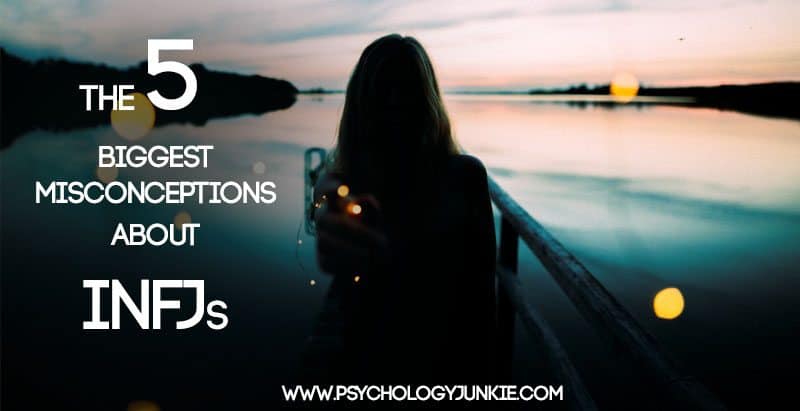
I asked an ESTJ, two ESFJs, two ISFJs, an INFP, two ISFPs, and two ENTPs to take two popular free online tests. I didn’t tell them why I wanted them to do this, just that I wanted to see if they got the same result as they did through the official MBTI®. They all got an INFJ result, except for one of the ENTPs who got an ENFP result. These slapped together online indicators are creating an abundance of mistyped people who are then writing about the INFJ type from their own perspective (which may indeed be the perspective of another personality type). As a result, many misconceptions abound about INFJs and I’m hoping today’s article can help to clear some of them up.
Not sure what your personality type is? Take our new personality questionnaire here. Or you can take the official MBTI® here.
Table of contents
Estimated reading time: 9 minutes
Misconception #1 – INFJs are Extremely Sensitive and Emotionally Intense
One thing that seems to be largely ignored in the personality community is that INFJs are intuitives first and feelers second. For the INFJ, the air they live and breathe is intuition. Understanding background processes, deciphering future implications, or reflecting on patterns and possibilities are things that they naturally gravitate towards. INFJs can certainly spend time dwelling on their own emotions and they can be sensitive, but it’s more frequent among IxFP personality types. INFJs use a mental process called Extraverted Feeling, and this function is more concerned with analyzing outer emotions than inner ones. As a result, INFJs may struggle when trying to sift through their own emotions.
Blogger Heidi Priebe describes it well when she says, “Because so many IxFP types misidentify as INFJs, INFJs often develop a reputation for being incredibly emotional dreamers – when in reality, they’re much more intellectual and discerning than they are emotional and imaginative.” See more of Heidi’s article here.
Can INFJs be emotional and sensitive? Yes. All types can be, but it’s generally not their main focus.
Sources: Psychological Types (The Collected Works of C. G. Jung, Vol. 6) (Bollingen Series XX)
My True Type: Clarifying Your Personality Type, Preferences & Functions
How Mistypes Have Warped the Descriptions of Each MBTI Type
Types who are more emotionally in-tune with themselves: INFPs and ISFPs
Misconception #2 – INFJs are Extremely Detail-Oriented
I see a lot of INFJ memes and articles that talk about how they are so detail conscious. They “see everything” apparently. I’ve heard people talk about how INFJs have to have their houses neatly in order and they notice every little thing that is out of place.
I have to respectfully disagree.
INFJs are usually very unaware of the concrete details of their environment. Because INFJs have inferior sensing they usually gloss over details unless they pertain to people or the big picture. In general the details of life aren’t what interest INFJs as much as meanings and possibilities. INFJs tend to take in an overall impression of the atmosphere around them, but can be very blind to the details of their environment.
“Dealing with details, especially in an unfamiliar environment, can trigger inferior Extraverted Sensing (Se) in Introverted Intuitive types. In fact, these types frequently mention that feeling overwhelmed by details often provokes characteristic inferior function reactions.
– Naomi Quenk, Was That Really Me?: How Everyday Stress Brings Out Our Hidden Personality
Sources:
The MBTI® Manual – A Guide to the Development and Use of the Myers-Briggs Type Indciator® Instrument
Was That Really Me?: How Everyday Stress Brings Out Our Hidden Personality
Types who are more detail-conscious: ISFJs, ESFJs, ISFPs
Misconception #3 – INFJs are Ambiverts
Because INFJs use Extraverted Feeling as their auxiliary function, they often get classified as ambiverts more than introverts. In social settings they can seem warm and gregarious. This is partially because they crave harmonious environments and value tact and overall good feelings. Awkward silences can make them feel like the harmony has been disrupted and they may appear more talkative than usual.
But INFJs are indeed true introverts.
Carl Jung himself said of INJs, “As their main activity is directed inwards, nothing is outwardly visible but reserve, secretiveness…uncertainty, and an apparent groundless embarrassment…When anything does come to the surface, it is generally an indirect manifestation of the inferior and relatively unconscious functions…Accordingly they are mostly underestimated, or at least misunderstood.”
“They (INFJs) prefer time away from external stimulation and mundane details in order to access their rich internal process.”
– Dario Nardi
While auxiliary feeling does allow INFJs to engage socially with a certain adaptability and awareness, they definitely need a lot of alone time so they can allow their Intuition to process and synthesize the information they’ve picked up throughout the day.
Sources: Psychological Types (The Collected Works of C. G. Jung, Vol. 6) (Bollingen Series XX)
Gifts Differing: Understanding Personality Type
Misconception #4 – INFJs Are Psychic
INFJs are masters of pattern-recognition and can easily be misconstrued as having some kind of “magical” foresight. The truth is much more technical.
INFJs gather copious amounts of information via their inferior function, Extraverted Sensation (or “Se” for short). Se is highly aware of concrete details and activity going on in the environment. However, unlike ESxPs who are Se-dominant, INJs don’t instantly react to or identify this information. Instead, they collect all this sensory data in a jumble in their mind. Their intuition works to synthesize this information, along with existing subconscious information, as if it’s assembling a puzzle or finding a way through a maze to a hidden insight. The INFJ then gets an epiphany or revelation about what is happening and how certain events may unfold. They can easily sense “the brewing storm”, but it’s because they are constantly running this intuitive process in their mind, piecing together clues.
“Once finished, Ni generates an impression that seems to come out of “nowhere.” But the fact is that the intuition did not come out of nowhere, but from a synthesis of sensory data gathered from the immediate environment combined with information from the INJ’s own psyche.”
– Dr. A.J. Drenth, Introverted Intuition
Sources: My True Type: Clarifying Your Personality Type, Preferences & Functions
Psychological Types (The Collected Works of C. G. Jung, Vol. 6) (Bollingen Series XX)
Neuroscience of Personality: Brain Savvy Insights for All Types of People
Misconception #5 – INFJs Know You Better Than You Know Yourself
No….no, no, no, no, no. This is why people call INFJs “special snowflakes” and find articles about them annoying and superior sounding. INFJs are gifted at picking up on patterns in human behavior, and they might be able to tell you (if you ask) which steps could lead in different directions. This doesn’t mean they know your entire past, history, experiences, or what made you who you are. They may be able to understand your emotional state before you blatantly spell it out, but that doesn’t mean they’re all empaths. To say something as incredibly arrogant as “I know you better than you know yourself” is insulting and belittling and certainly not kind or intelligent. INFJs, like anyone, can be duped or wrong.
Source: Common sense
The INFJ personality type is unique and wonderful in so many ways. But so are all fifteen other personality types. I hope this article has cleared up some of the misconceptions…what do you think? Let me know your thoughts in the comments!
Find out more about your personality type in our eBooks, Discovering You: Unlocking the Power of Personality Type or The INFJ – Understanding the Mystic. You can also connect with me via Facebook, Instagram, or Twitter!
This article contains affiliate links. I only recommend products I truly believe in.
Like this article? Then you’ll enjoy these!
The Four Reasons INFJs Struggle with Loneliness
The Top 7 Gift Ideas for INFJs
Are You an INFJ or an INFP? Clarifying the Most Common Mistype
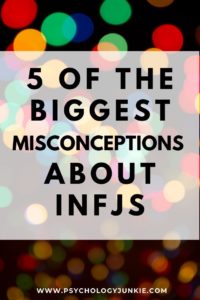
Get Your Free INFJ eBook
As a thank you for subscribing to my newsletter I will send you this free eBook PACKED with self-care tips, creativity hacks, and more! You'll also get a 3-day email course for understanding your personality type better!


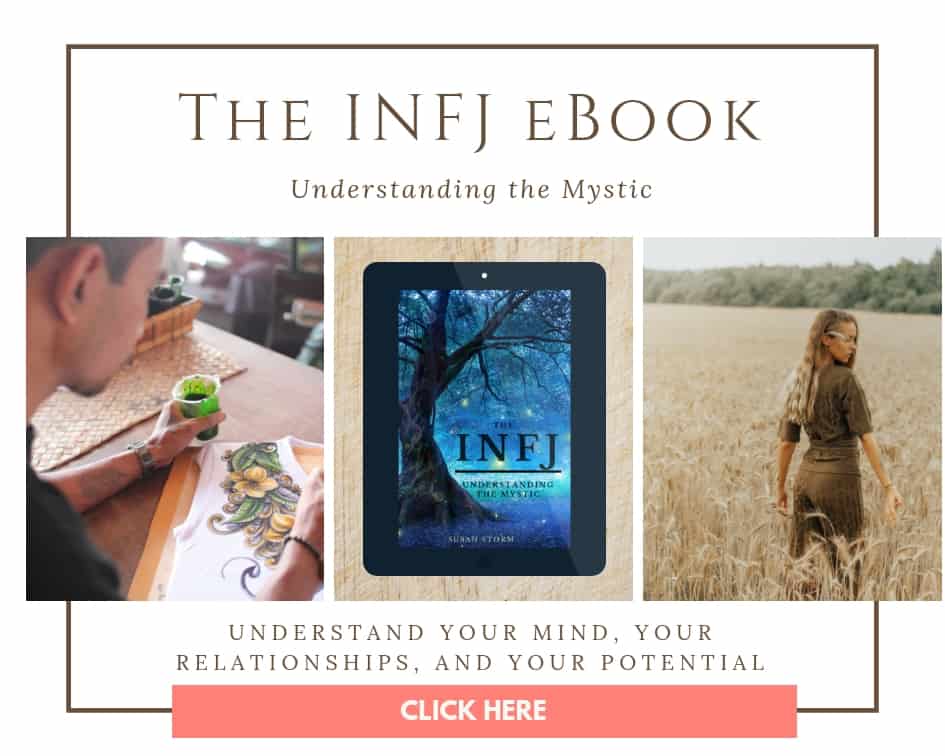


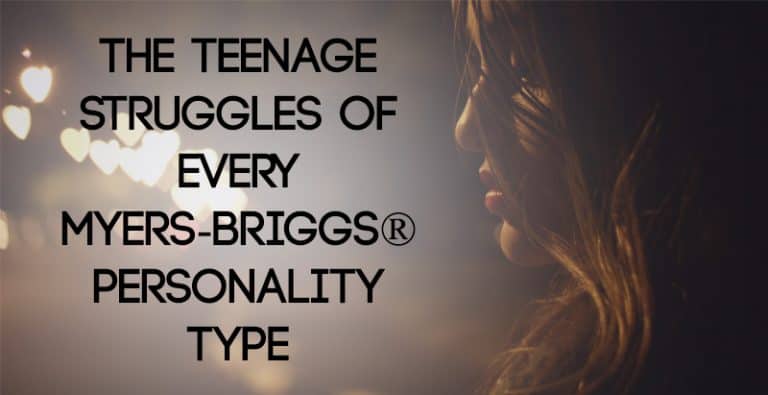
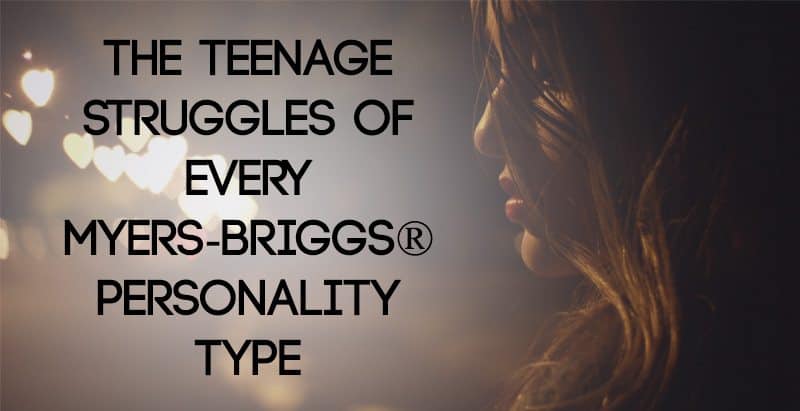

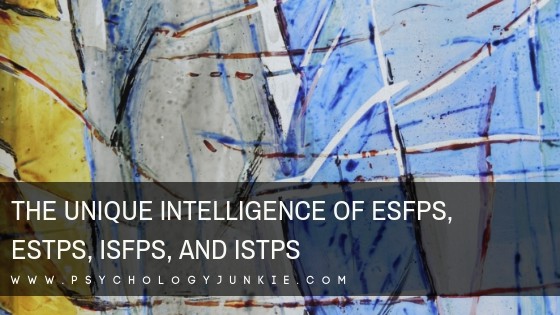




I feel that this article is purely biased because you want to define what an INFJ personality should be and is. If these “misconceptions” are not true, then why do most of the explanations explain my character or persona to a tee? Guess I have a mental issue to look after then…Also i took the MBTI in college. I have not met another being who feels the same way as I do, having the characteristics of an INFJ. So it is kind of a weird statement to make that they are everywhere because I never had anyone share the same viewpoints as i do about the true issues of our society.
Hello,
I hope to provide some useful insight if I can. “If these “misconceptions” are not true, then why do most of the explanations explain my character or persona to a tee?” – If the misconceptions about the INFJ are what explains your character, you are probably mistyped. Also, just because the author wants to define what an INFJ personality should be and is, doesn’t mean they are biased; the entire mission statement of MBTI is to define and categorize personality so as to better understand other people.
Finally, INFJs have auxiliary Fe, so when you say, “I never had anyone share the same viewpoints as I do about the true issues of our society,” It doesn’t really strike me as an INFJ. If anything, you should share some, most or (rarely) even all viewpoints with ENFJs and other MBTI types with similar functions. INFJs feel pretty misunderstood generally, yes, but having NEVER met another person like you? It seems to me like you got caught up on the fact that INFJs are the “rarest” personality (not that that matters or means anything at all – technically, 1.5 of every 100 you met will be INFJ) and stuck to the mistype because that sounded right to you. I’m not saying you’re not a unique individual, just to be clear, I’m just hoping that’s not what you’re basing your typing off of. You say you took the MBTI test in college, but it is VERY VERY easy to mistype as INFJ.
Anyways, if the misconceptions here explain your character let’s look in to some possible typing. Emotionally sensitive and intense? That smells like Fi all over. I’d suggest looking into INFPs, who commonly mistype as INFJs, or ISFPs, which is also possible because they’re tertiary Ni may resemble the INFJs primary. Being detail oriented? That’s an Si trait. Look at ESxJs and ISxJs. Although I’m guessing since you tested INFJ you can cross the ESxJs off the list. Ambiverted? Honestly that one could be any type. Introverted or Extraverted isn’t necessarily how the person acts in public or whether they value time with other people, but from where they draw their energy. A true Introvert draws energy by being alone to recharge. Psychic/good at reading people is just an exaggerated term for the INFJs Ni/Se processing mixed with the Fe to use it on other people. This however doesn’t mean INFJs are the only ones good at reading people. Any developed, strong Fi/Fe user should have a good thermometer of other’s emotions and intentions.
Hope I could help.
Agree with what you have said. The Fi of Jennifer Gonzalez was on the spot even starting from her first sentence “I feel that this article is purely biased…”. It is very obvious that she is a mistyped.
Thank you – you’ve listed some of the very reasons I have felt awkward talking about the MBTI to some people. Admitting that I’m an INFJ used to feel like I was claiming to be a SuperSpecialPsychicPerson! who is inherently better than all those simple, common types. To avoid giving that impression in any way (despite the fact that I DON’T think that about myself, that only a small-minded narcissist COULD think that), I used to go overboard in describing and hyperbolising all my faults (‘I don’t notice physical things even when I literally trip over them! I can’t tell the difference between being hungry, thirsty, tired, or sick! My brain is like a washing machine full of socks: sometimes I can pull out a matching pair in the color I want, but usually I just end up with an armful of random oddities!’)
I’ve grown up and worked through many of my insecurities since then, to my great relief! One of things outside of myself that’s made a difference is the impact of blog-writing people like you. I’m particularly glad to see how you write about Extraverts and Sensors. There seems to be so much dismissiveness and stereotyping about those preferences on personality-focussed websites, and I think that is at least part of the reason so many people end up mistyped. Who wants to be someone uninteresting or second rate?
So thank you for refuting many of those ‘common knowledge’ stereotypes, and for listening to what people of various types have to say about themselves. I appreciate that I can send the ESTJs and ESFPs I know to your site, and they won’t read that they are rule-following robots or table-dancing airheads. 😀
It all depends on where you get your information from describing the different personalty types. Personally, I’ve never read that INFJ’s are revered as some super special unique beings or whatever. We are unique though and there is nothing wrong with that in the same way that there is nothing wrong with being typical. As I told my wife who is an ISFJ (the most common), thank God most people are like you, sweet, sensible, caring, and know when to speak up. But above all it’s the hospitality factor that is dominate in her. For myself, an INFJ world would be a disaster and I know it. We are here to listen, to help, to guide and assert ourselves for a cause that we believe in when we are brave enough to get out of our shells. The study of personality is intriguing but not nearly as complex as people make it out to be, we are getting too technical. Just read those 4 little letters and spell it out. In the end it’s what you identify with that makes you who you are. I am an INFJ…period.
Thank you!!! This is spot on. This article was spot on. I appreciate the truth written in theses misconceptions. I am an INFJ. And I thank you for clarifying to other that we’re not all knowing mystics and we can get it wrong. Just because I know things doesn’t mean I know everything. There’s only ONE who does. Again thank you for the clarification.
INxJ here. I seem to fall right in the middle and when taking any of the tests always know which questions ultimately determine the thinking/feeling aspect. When given two choices on those questions my answer is always “BOTH, of course”
Great article.. I especially related to the tidy up stuff. I’d like to, but that’s pretty low on list of priorities for me. I only wish it was easier to do those now “ present” things. ..!
Also the emotional snowflake thing rings true… I do have emotions ect. But my first tactic is to avoid them by thinking about stuff. And if needed , talking to someone about them. Seems only way( orcwriting? ) to even process that stuff.
I read quite a lot about people, and their ideas and moods ect but bluntly I’ve always found humans incredibly HARD to understand. Not easy. .. just my 2 cents worth.. finally. Feeling no one gives you proper credit/ effort ect doesn’t mean infj are vain or think we are better. If anything, I think we constantly question our own worth.. mostly not so dumb as to say I’m better, but I bet it might sound like that easily enough. Just saying.
Very well put! I’m happy to see an article that doesnt build up INFJs as angels/saviours/wizards. Im sure some INFJs possess incredible qualities, but a normal, everyday one (Hi!) is neither a world-changing visionary or mind-reading empath. We simply take in and process data in a particular way.
In regards to the first point about INFJs being more intellectual and less emotional – on a personal level, I absolutely agree. I think it depends on the INFJ tho, with those more Ti-focused being more philosophical and idea-friendly, and those more Fe-focused being more emotion and people-focused.